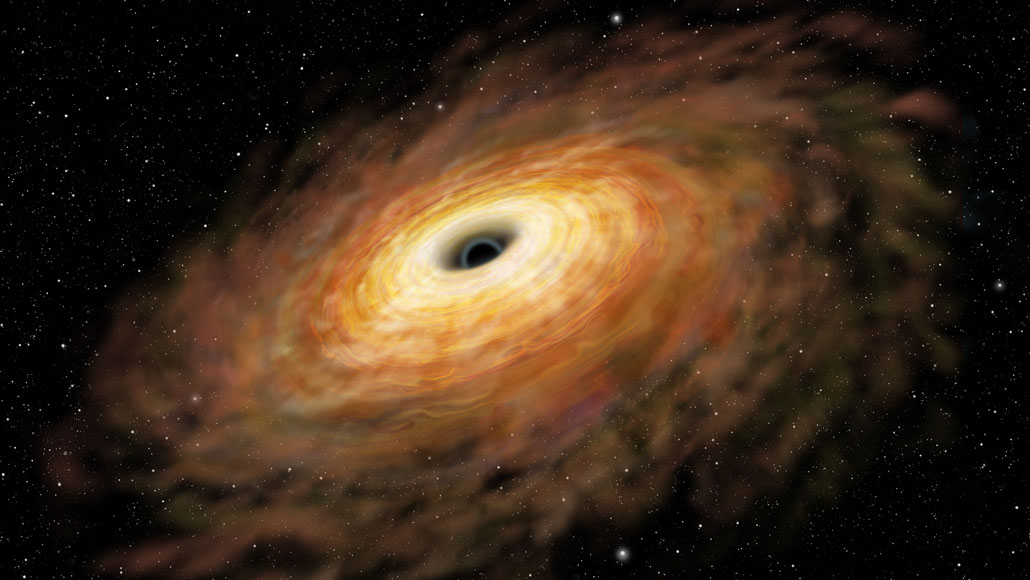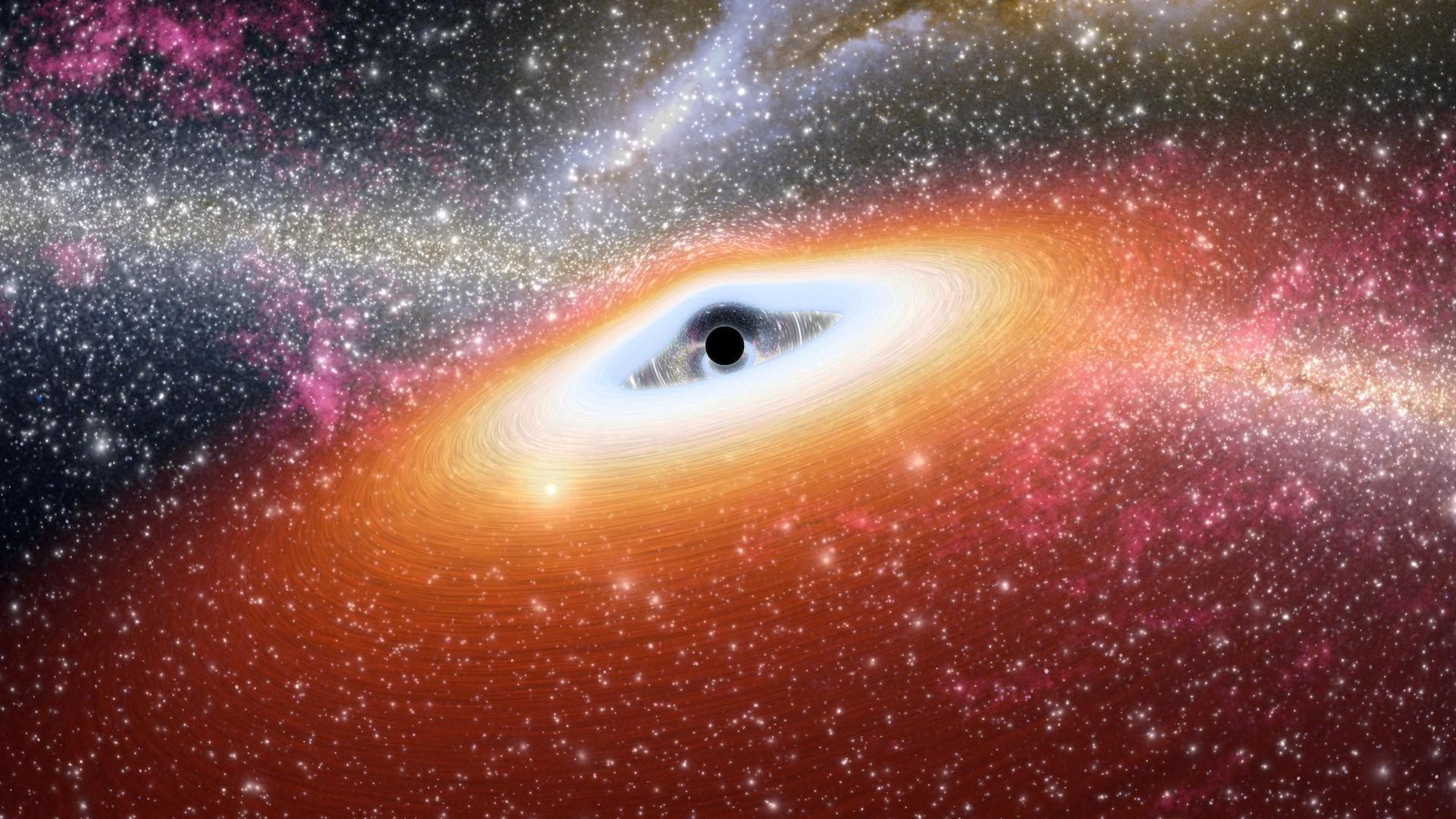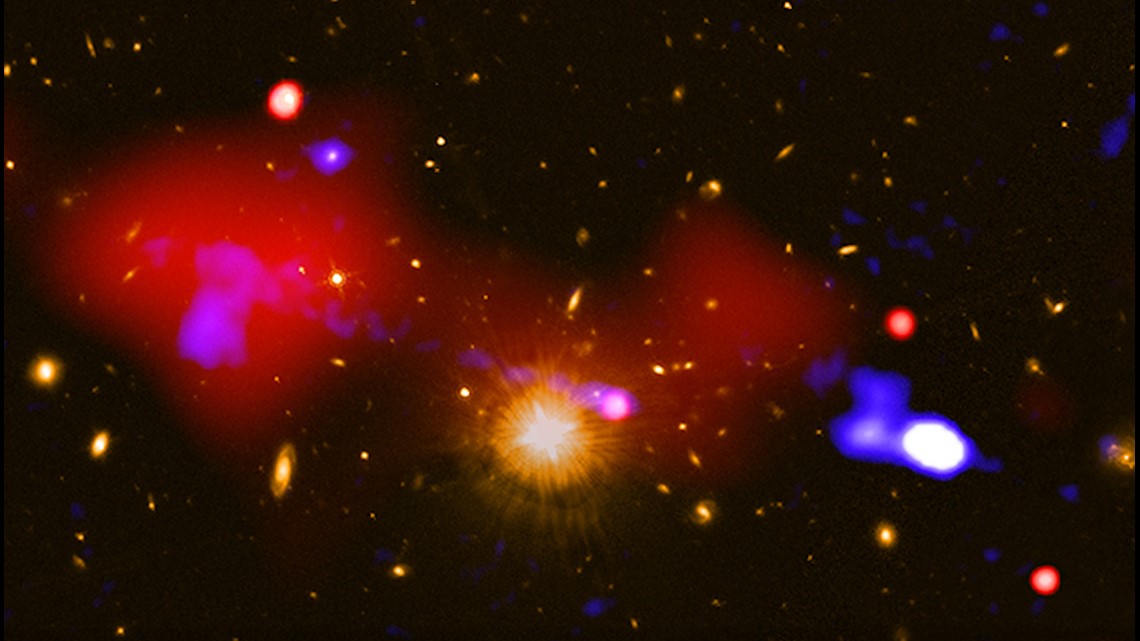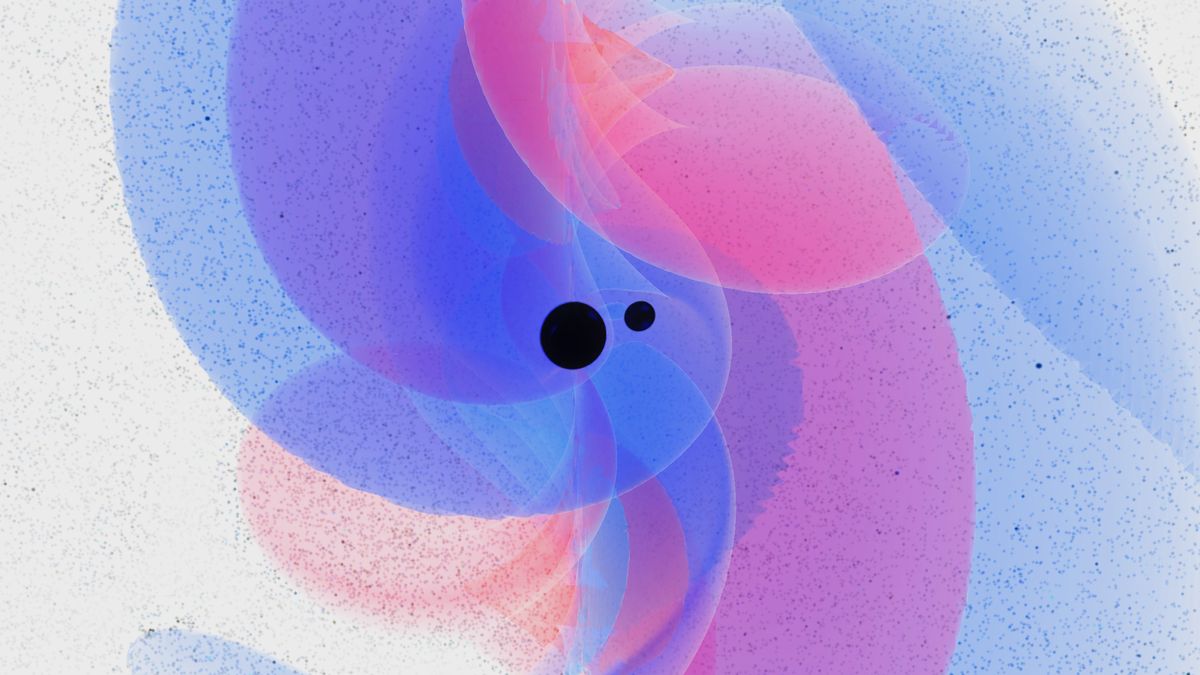
The black hole is locked in orbit with a young blue star dubbed LB-1, which sits about 13,800 light-years away in the constellation Gemini, researchers found. Combing through data from the LAMOST telescope in China , Jifeng Liu, an astrophysicist at the Chinese Academy of Sciences in Beijing, and colleagues noticed that LB-1 repeatedly moves toward and away from Earth with great speed — a sign that the star orbits something massive.
* * *
"I never thought in my wildest dreams you could form a black hole this big [in the Milky Way]," says Michael Zevin, an astrophysicist at Northwestern University in Evanston, Ill. "If the observations pan out to be correct, this is really going to have people scratching their heads."
In case you are keeping track:
Black hole bombshell: Planets might be orbiting black holes - 'New field of astronomy'

Thousands of exoplanets may be orbiting black holes like how Earth orbits the Sun. Scientists have long believed planets are formed from pieces of dust that coalesce in a disc around a young star.
* * *
But the latest research published in the Astrophysical Journal suggests planets could potentially also form around black holes.
Planets could actually be created in such extreme environments, new work suggests, and a black hole could be home to thousands of planets.
Black hole nurtures baby stars a million light years away

"This is the first time we've seen a single black hole boost star birth in more than one galaxy at a time," said Roberto Gilli of the National Institute of Astrophysics (INAF) in Bologna, Italy, lead author of the study describing the discovery. "It's amazing to think one galaxy's black hole can have a say in what happens in other galaxies millions of trillions of miles away."
A black hole is an extremely dense object from which no light can escape. The black hole's immense gravity pulls in surrounding gas and dust, but particles from a small amount of that material can also get catapulted away instead at nearly the speed of light. These fast-moving particles form two narrow beams or "jets" near the poles of the black hole.
Finding new kind of black hole could be within reach, new study suggests - Axios

What they found: LIGO can, in theory, pick up ripples in space-time from intermediate-mass black holes today, but according to the new study, it will take future detectors to get a more complete view of the mysterious objects.
What's next: New ground-based observatories could also help scientists parse signal from noise and find direct evidence if these types of black holes exist.
And here's another article:
A Black Hole May Have Triggered Star Birth Across a Million Light-Years | wtol.com

Here's what would happen if a black hole smashed into Earth | Metro News

Here in the British Isles, we're currently worried about Brexit , house prices and what to buy loved ones for Christmas.
But all these major concerns would start to look pretty trivial if a monster black hole suddenly appeared on the horizon.
Now scientists have offered the world a new way of working out what would happen if Earth smashed into one of these dark beasts.
Simply put, a black hole is a massively dense object with such a strong gravitational pull that not even light can escape.
Galactic baby mama drama: New data upends theory of black holes | Inverse

W hen it comes to star formation, supermassive black holes are not what springs to mind — rather the opposite. These large cosmic monsters aren't exactly known for their parenting skills . In fact, they often trigger the early demise of stars by putting an end to their formation.
But not all black holes may be so destructive. In a new paper, scientists describe a black hole that seems to buck the trend and then some. This black hole seems exceptionally nurturing, spreading its stellar progeny throughout its own host galaxy and across multiple other galaxies, some of which are more than one million light-years away.
Astronomers Will Use Gravitational Waves to Observe a 'Black Hole Symphony' | Space

Black holes are among the most fascinating objects in the universe, yet they remain elusive because they are so incredibly dense, and their gravity is so strong that not even light can escape their grasp. To uncover black holes hiding across the cosmos, researchers have turned to an emerging field of research known as gravitational-wave astronomy.
Using LIGO and other observation technologies, a new study aims to paint a more complete picture of black holes — specifically those belonging to the more obscure category known as intermediate-mass black holes (IMBHs).
Happening on Twitter
"I never thought in my wildest dreams you could form a black hole this big [in the Milky Way]." https://t.co/eZhUaYzctb ScienceNews (from Washington, DC) Wed Nov 27 18:28:34 +0000 2019
No comments:
Post a Comment